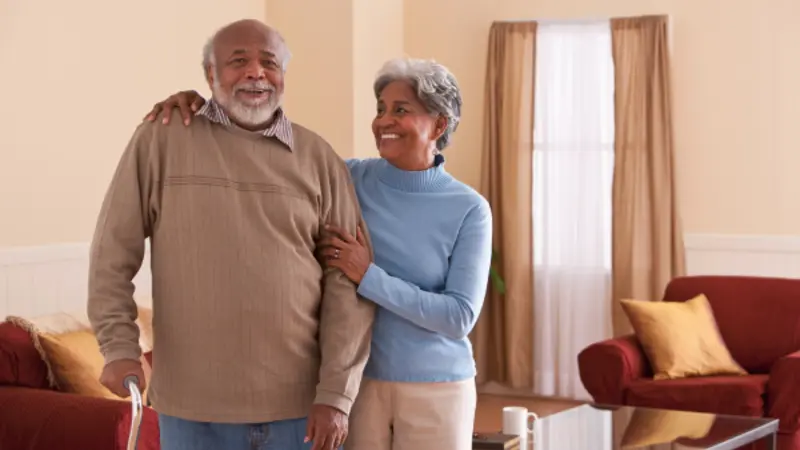Blog: Walk tall – and reduce the risk of a fall
Anyone of any age can fall, trip or take a tumble. But older people are more vulnerable to falls which can have serious consequences for long-term health and lifestyle.
While falls aren’t an inevitable part of ageing, they are more common in later life and more difficult to fully recover from. Besides the potential for pain and injury, falls can destroy confidence in older people, leading to increased isolation and loneliness.
To mark the start of Falls Prevention Week, we’re looking at what can be done to reduce the risk and help keep older people on their feet.
Figures from NHS Inform Scotland show that:
1 in 3 people over the age of 65 experiences a fall at least once a year.
More than 18,000 older people in Scotland are admitted to hospital each year as a result of a fall.
Falls are most common reason for an ambulance being called to an older person.
Research being conducted at Manchester Metropolitan University into the hidden costs associated with the Covid pandemic has highlighted an increase in fall-related accidents among older people linked to deconditioning. Loss of strength, balance and mobility are all risk factors when it comes to falls.
However, the good news is that there are lots of ways to reduce the risk. Here are some tips, based on advice from NHS Inform Scotland, to prevent falls:
Stay active
Keeping physically active to maintain strength, balance, flexibility and mobility is crucial when it comes to reducing the likelihood of having a fall. Walking, stretching, light gardening, swimming, yoga or tai chi can all help older people stay active and move with confidence.
Look after your feet
Common foot problems, including bunions, corns and ingrown toenails, can make you unsteady on your feet. Regular foot care can prevent problems and keep older feet pain free.
Replacing ill-fitting or worn footwear, including slippers, is another way of reducing the falls risk.
Get your eyes and ears checked regularly
Changing vision and hearing loss are a normal part of ageing but they can also contribute to falls. Stay on top of any changes with regular visits to the optician or GP.
People living with dementia can be more significantly affected by sight loss. The RNIB has more advice on dementia and sight loss here.
Manage your medication
The side effects of some medications, including dizziness, drowsiness and blurred vision, can contribute to a higher falls risk, as can taking multiple medications.
Follow the written instructions carefully, taking medication at the right time of day, with or without food and speak to your GP about any concerns.
Identify hazards at home
More than half of falls take place at home so it’s worth taking time to identify – and get rid of – potential hazards to make your home safer.
Slip and trip hazards include clutter – items left lying on the floor or stairs – as well as uneven flooring, trailing cables and loose rugs. Laminate or tiled floors can be slippery so avoid walking on them in stocking soles.
Good lighting so you can see obstacles and where you’re putting the feet can also help, especially if you get up in the night.
Move safely
All bodies change as they age and everyday actions, such as getting out of chair or going up and down stairs, can suddenly seem more of a challenge. Loss of muscle strength and stiffening joints can make you feel unsteady and change the way you walk, increasing the risk of falls.
Staying active, to maintain balance and muscle strength in the legs, is important. If you have walking aids, use them to help you walk safely. And if you need more support around the house, for example grab rails in the bathroom, it’s worth speaking to your GP about getting an occupational therapist assessment to ensure your home is as safe as possible.
Eat well, stay hydrated
Significant weight loss can lead to frailty and increased risk of falls. Eating a healthy, balanced diet, with plenty of protein, and maintaining a healthy weight can help reduce the risk.
Hypoglycaemia – low blood sugar – can cause dizziness so it’s important not to go too long without eating.
Recent research has linked lack of Vitamin D with an increased risk of falls so if you feel you don’t get outside enough to get your daily dose of sunshine, speak to your GP about taking a Vitamin D supplement.
Drinking plenty of fluids will also keep you feeling your best and steady on your feet. Aim to drink between six and eight glasses of water a day. Cups of tea and coffee work too, but not fizzy drinks or alcohol.
For more advice on how to stay well in later life, go to the Age Scotland Health and Wellbeing pages:
Keeping active in later life
Eat well
Hydration matters


